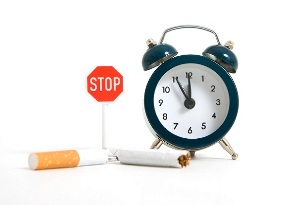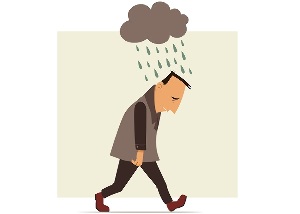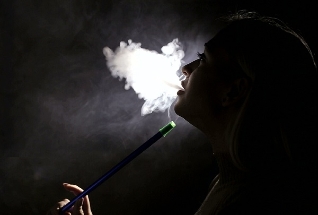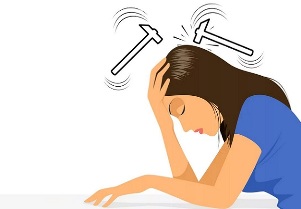
It is difficult to find an adult smoker who has no regrets about his first cigarette and dreams of giving up his addiction. An unpleasant smell, discomfort during the flight or at work, where they are penalized for smoking breaks, condemning the views of passers-by and household members, damage to health paid for with personal money (besides, considerable) - this is not an exhaustive list to encourageto part with the coveted package. With all of the downsides, people often wonder why it is impossible to stop smoking suddenly, or whether this is just a plus.
In the smoker
There are two camps among ordinary people and doctors who fundamentally differ in their approach to eliminating nicotine addiction. Some believe that "the tail will not be chopped off in parts, " while others believe that if you suddenly quit smoking, the health consequences can be unexpected.
Under the constant influence of nicotine on the body, some natural processes are changed:
- Tissues suffer from constant hypoxia. Red blood cells combine with carbon monoxide and can no longer carry oxygen. It is very dangerous for pregnant women, especially in the first and last trimester.
- The immunity is strengthened. The body is regularly poisoned with nicotine, another harmful component of tobacco, it is used to defend itself.
- The oral cavity is washed by saliva, which carries with it resins that have settled on the teeth, mucous tissue, in the stomach and cause gastritis, other indigestion and nausea.
- The work of the central nervous system is disturbed, the brain is constantly lacking oxygen, the transmission of nerve impulses along the fibers slows down.
- A smoked cigarette stimulates an increase in adrenaline levels, which causes pressure to rise, blood vessels to expand and the heart to beat faster.
- The brain produces dopamine in response to a train. The hormone creates the illusion of pleasure, forms a habit. The longer and more a person smokes, the more tobacco smoke he has to channel through himself to get a sense of pleasure.
- The blood thickens, the walls of the arteries become brittle. The number of strokes and heart attacks in those who like to increase is much higher than in non-smokers.
A particular danger is the simultaneous consumption of alcohol and smoking. The heart and blood vessels are doubly stressed by these destructive components. The brain, which uses up most of the oxygen and nutrients supplied by the blood, is initially affected by the effects of alcohol and carbon monoxide.
In addition to nicotine, a cigarette contains many harmful ingredients, the most dangerous of which are recognized:
- Benzene.
- Chrome.
- Cadmium.
- nickel.
- Uranus.
These elements cause lung, esophageal, oral cavity, larynx and pancreatic cancers.
Men experience early loss of sexual strength at a young age, which is due to a sluggish erection due to circulatory disorders. The quality of the seminal fluid suffers, sperm are less active, which leads to complete or partial infertility.
Cigarettes often prevent women from getting pregnant quickly, the mechanism of follicular maturation is disturbed, the level of the most important female sex hormone estrogen falls, menopause occurs more quickly in smokers and the libido suffers. Often times, a woman continues to smoke while carrying a child. This leads to hypoxia of the fetus, the development of pathologies that may appear at birth or later. There is a high risk of premature births, stillbirths and severe toxicosis.
How the body reacts to suddenly quitting cigarettes
It is important to understand what will happen if a person decides to stop smoking abruptly, what the consequences will be. Sharp rejection is hard to take, but recovery is quicker. It is understood that the longer the smoking experience, the more difficult the abstinence period is usually tolerated:

- Day 1. Joy, inspiration, belief in success, the body has not yet understood anything.
- Day 2. The first signs of "withdrawal" begin, awareness of a change in lifestyle arrives. Irritability occurs, I want to smoke.
- Day 3. All thoughts revolve around cigarettes, it is difficult to fall asleep, the feeling of emptiness inside. Skin rashes and flakes of skin may occur.
- Day 4. There is more oxygen in the blood, it is easier to breathe, and sleep can be light and intermittent. Some people notice noises in the head, ears, and slight swelling of the limbs.
- Day 5. Peak time, the urge to smoke becomes unbearable, the probability of failure is high. A cough occurs, the mucus comes out difficultly, is dark in color and has an unpleasant smell. Aromas and tastes acquire new hues, become brighter and richer.
- Day 6. Sleep is disturbed again, the hands are shaking, the mood fluctuates from aggressive to depressed.
- Day 7. The body has got rid of nicotine addiction. From that moment on, any desire to raise is only associated with a habit, a psychological bond. It is worth removing everything that provokes cigarette cravings and simulating familiar situations differently. Replace your morning coffee with a cup of tea, collect Rubik's cubes for a phone call, etc.
Over time, the body cleans itself of putrefactive products and removes all accumulated resins and toxins. The volume of the lungs will be restored, the brain will be more productive, there will be clarity of thinking and the ability to learn will increase. Sleep becomes deep, full, tiredness, mood swings disappear.
Immunity falls first, a person easily catches a cold. Against this background, bronchitis, tracheitis, laryngitis and stomatitis often occur. The voice can change timbre, become hoarse and hoarse. You should understand the reason behind these phenomena and know that it is related to restructuring the body into a nicotine-free regime. It is advisable to support yourself by taking vitamins and immunostimulants (ginseng, eleutherococcus).
Indicates whether the habit should be given up or not

Quitting smoking is definitely worth it. The overall benefit far outweighs the temporary inconvenience. To reduce the negative consequences, you can:
- Do sports. Physical activity accelerates metabolic processes, blood circulation, improves heart function, improves mood, promotes healthy sleep and stabilizes blood pressure. Older and unprepared people need to gradually increase the load, starting with long active walks and gymnastics.
- Check your diet. Fill the diet with quality, healthy products, exclude fast food and other food waste.
- In the first stage, drink a drug that dilutes sputum and facilitates its elimination.
- Don't drink alcohol. Alcoholic beverages in themselves are not useful, under their influence you will want to smoke more.
- Instead of tablets for expectoration, a good result is achieved if the herb coltsfoot, calamus, nettle and elecampane is boiled out.
Every organism is individual. An elderly person with a bouquet of chronic illnesses should see a doctor about when and how best to quit smoking.
In some cases, doctors really recommend reducing the number of cigarettes, but not eliminating them entirely.
Subtle moments

There are situations in which people are reluctant to stop smoking suddenly because they fear negative consequences:
- Blood pressure disorder. Hypertensive patients and those with low blood pressure feel confident that rejection can make their condition worse. The doctor will help you choose drugs that will stop the body's reactions to rejection, and over time the situation will stabilize.
- overweight. Many girls and men are afraid of gaining weight. Some smoke the feeling of hunger, but cigarettes themselves do not contribute to weight loss. Food can initially make up for the feeling of emptiness when you want to smoke. The taste is lighter and the food looks more attractive. If you approach its use consciously, you can even lose weight.
- pregnancy. A woman usually learns about an interesting situation after 6-8 weeks. She should immediately rule out a harmful factor while she or the fetus suffer no harm.
- tuberculosis. Quitting smoking can be mentally difficult for people, stressing them out and slowing their recovery. In either case, the doctor will tell you whether to do this while sick or wait for a cure and forget about cigarettes forever.
It is believed that using weeds and hashish to help quit smoking. The bronchi and lungs are cleared faster, the nervous system calms down, and the process is easier. There is no objective evidence that smoking hashish, marijuana and other hemp products is no less harmful to humans than nicotine cigarettes.

In order to alleviate psychological complaints, attempts are being made to replace cigarettes with electronic counterparts, shisha and vape. Inhalation of steam saturated with substances of unknown origin (often there is no clear composition for mixtures and refills for them) is very harmful, es:
- Irritates the bronchi and lungs.
- Contains heavy metals, toxic substances.
- provokes allergies.
- Steam provokes bronchopulmonary diseases.
Shisha smoke exceeds cigarette smoke in terms of carbon monoxide content. All dressings have a pleasant aroma that encourages a person to take a deeper breath. A large amount of the substances it contains gets into the blood. The WHO said at a 2008 conference that e-cigarettes had not been shown to be effective as a replacement therapy for smoking cessation.
Consequences of a sudden rejection
The hardest thing is to go through the notice period. For many people, it is psychologically difficult to admit that they are saying goodbye to a part of their life forever, albeit negatively. Often this action is accompanied by the following:
- Irritability.
- I feel empty.
- Decreased body tone.
- mood swings.
- Worsening of concentration, confusion.
- Reduced performance.

Physiological responses can include:
- Sleep and appetite disorders.
- temperature rise.
- pain, sore throat.
- Start of coughing.
- headache, migraine.
- Pressure drops.
- Fast heartbeat.
- Common respiratory diseases.
Depending on the length of service, the number of cigarettes smoked daily, the age and state of health of a person, symptoms disappear from a month to a year and gradually decrease in severity.
Summary
Quitting smoking is a step towards a new, free life. Without cigarettes:
- health improves;
- Self-esteem increases;
- Conflicts with non-smoking relatives are settled;
- saves finances.
There are dozen of benefits to quitting addiction. Of the minuses of sharp rejection of nicotine, only temporary mental discomfort, a period of withdrawal and a short-term deterioration in well-being due to the restructuring of the body can be noted.























